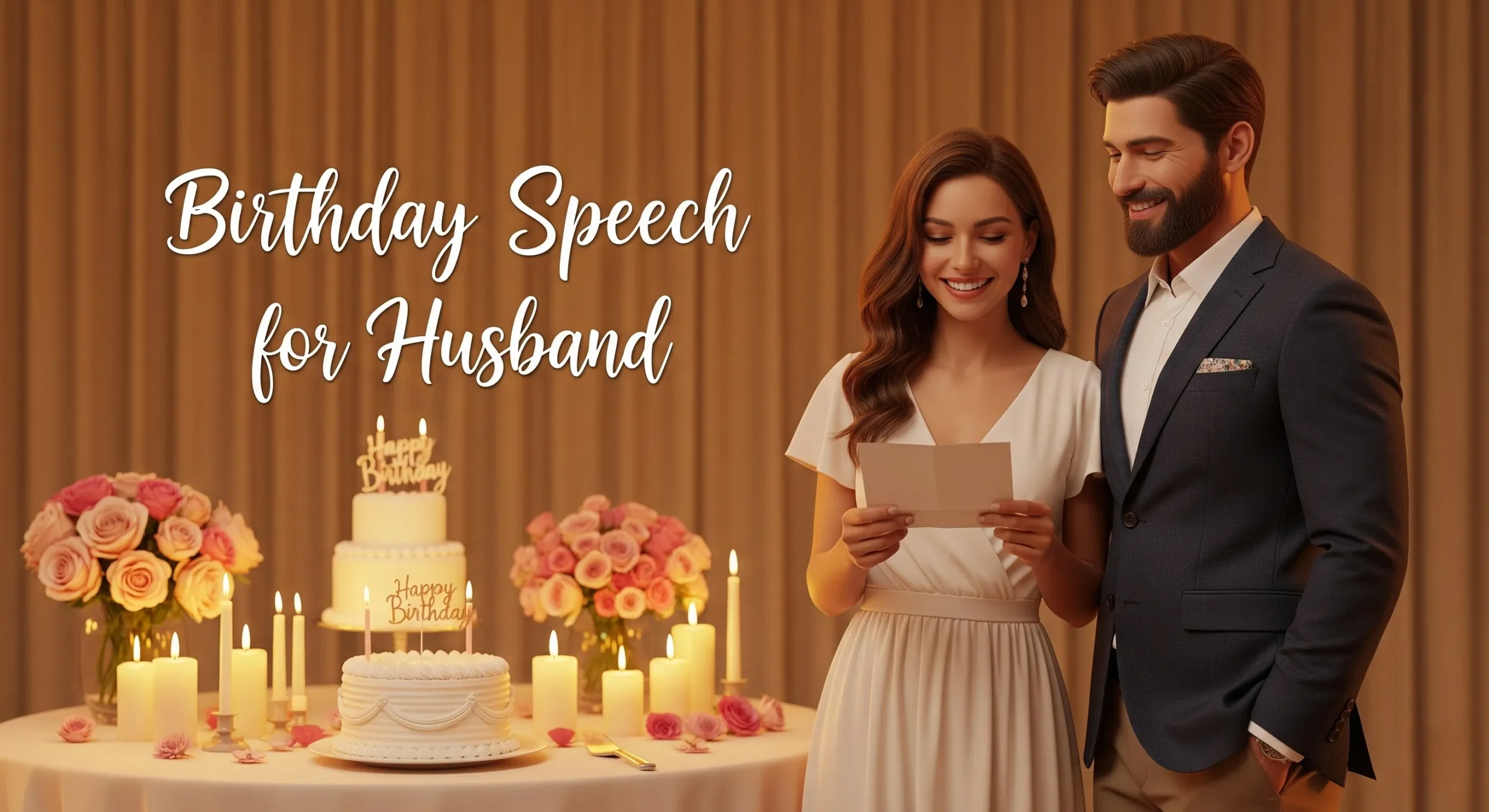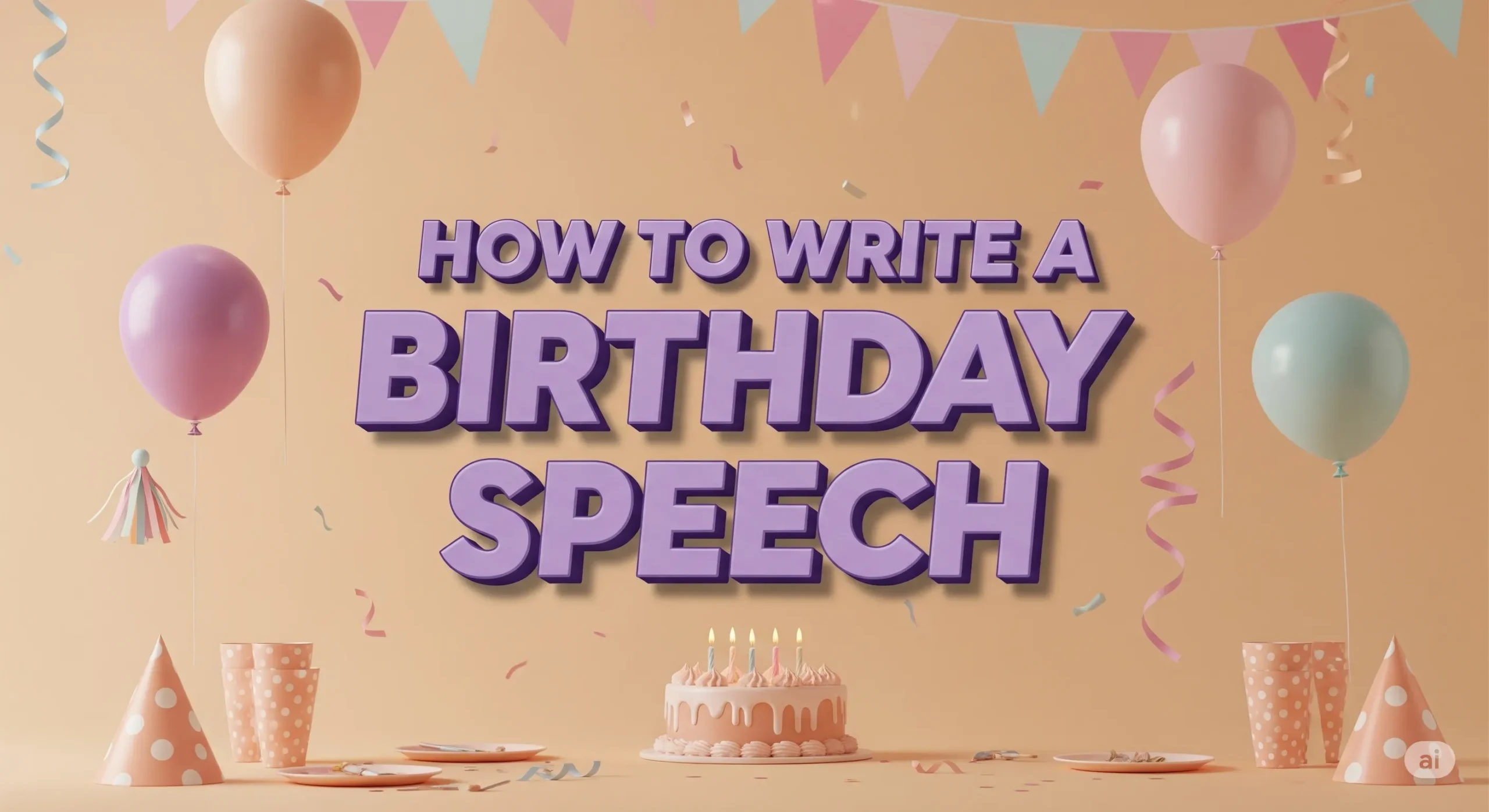Table of Contents
Writing and delivering a eulogy is one of the most emotionally challenging tasks you may face. A eulogy is a tribute to a person who has passed, typically delivered at a funeral or memorial service. It serves as a way to honor the deceased, celebrate their life, and offer comfort to those grieving. While it can feel overwhelming, a eulogy offers a profound opportunity to express your love, memories, and gratitude.
This article will guide you how to write a eulogy, offering practical steps, eulogy examples, tips on what to say to those who have lost a loved one, and a sample obituary template.
How to Write a Eulogy? Why It Matters
A eulogy is not only a way to celebrate a life well-lived, but it also provides a sense of closure and healing for those in mourning. It’s a chance to publicly honor the person who has passed, reflect on their impact, and offer solace to friends and family. For the speaker, writing a eulogy can be an emotional and cathartic process, helping them cope with the grief.
The Emotional Power of a Eulogy
A well-delivered eulogy has the power to move the audience, offering both comfort and healing. It’s an emotional acknowledgment of the deceased’s journey, celebrating their achievements, qualities, and relationships. The tone should strike a balance between reflecting on the person’s life and offering hope to those left behind.
Steps for Writing a Meaningful Eulogy
Writing a eulogy may seem daunting, but it can be approached methodically. By following a structured approach, you can craft a speech that reflects the essence of your loved one and speaks to the heart of those who hear it. Here’s how to get started.
Step 1 – Gather Important Information and Memories
The first step in writing a eulogy is gathering all the relevant information. Reflect on the person’s life, their achievements, and the impact they had on others.
- Personal Details: Start by noting key facts—name, birth date, significant life events, and family relationships.
- Anecdotes and Stories: Think about specific memories or moments that showcase their character and essence.
- Family and Friends: Speak with close family members or friends to gather their perspectives, ensuring your speech is filled with different angles of the person’s life.
Step 2 – Choose the Tone of the Eulogy
The tone of a eulogy should reflect the personality of the deceased and the nature of their relationships with others. You can opt for a formal, heartfelt approach, or a more lighthearted one, depending on their character.
- Formal or Informal? If the person was known for their formal demeanor, a respectful tone may be best. Conversely, if they were known for being relaxed and humorous, you may adopt a more casual approach.
- Emotional vs. Lighthearted: Depending on the context, you can mix humor with sadness. If the person had a great sense of humor, include funny anecdotes that align with their character.
- Message of Hope: Emphasize the positive impact the person had and the love they shared with everyone. This can bring comfort to mourners and inspire them to honor the deceased’s memory.
Step 3 – Structure the Eulogy
An organized eulogy ensures that your words are clear and impactful. Here’s how to structure your speech:
- Introduction: Start by introducing yourself and explaining your relationship to the deceased. You can also express how honored you are to speak on their behalf.
- Body: This section forms the core of your speech. Share memorable moments, qualities, and anecdotes that reflect the essence of their character. Highlight their achievements and what made them unique.
- Conclusion: Conclude with a message of hope and gratitude, acknowledging how the deceased will continue to inspire and live on in the hearts of those they’ve touched.
What to Include in a Eulogy

When writing a eulogy, it’s essential to include elements that honor the person’s legacy. The speech should paint a picture of who they were, what they achieved, and the lasting impact they had.
Honoring Their Legacy
Acknowledge the milestones in the deceased’s life that made them unique.
- Career and Achievements: If the person had significant career accomplishments or contributions to their community, mention them.
- Passions and Hobbies: Include what they loved doing—whether it was a hobby, travel, or service to others.
- Influence on Others: Talk about the relationships they built, how they supported others, and the love they gave to friends, family, or colleagues.
Personal Traits and Qualities
Reflect on the qualities that made them who they were. This is an opportunity to show their true personality and how they impacted others.
- Kindness, Humor, and Strength: Speak about their defining traits—perhaps their generosity, strength in tough times, or humor.
- Relationships: Acknowledge the important people in their life. This could be their partner, children, or lifelong friends, and the deep connections they shared.
What to Avoid in a Eulogy
While a eulogy is a celebration of life, it’s important to avoid certain elements that might detract from the message.
- Overly Negative Stories: Avoid focusing on negative aspects of their personality or difficult times unless you can tie them to a lesson learned.
- Too Much Detail: A eulogy should be concise, focusing on the essence of the person’s life, rather than overwhelming the audience with unnecessary details.
Sample Eulogy Examples
Real-life examples can help guide you as you draft your eulogy. Here are three sample eulogies for different relationships to the deceased:
Example 1: Eulogy for a Parent
“Good morning. I am honored to speak on behalf of my [father/mother], who was not only my parent but my guiding light. [Name] taught me the value of hard work, love, and patience. I will forever remember the moments we spent together—whether we were enjoying quiet moments at home or celebrating life’s milestones. My parent’s legacy will live on through the values they instilled in me, and I’ll carry those lessons with me every day.”
Example 2: Eulogy for a Friend
“Today, we gathered to say goodbye to my dear friend [Name], who had a heart full of joy and laughter. We shared countless memories, from our adventures to the quiet conversations that made me feel understood. I will always cherish [his/her] ability to light up any room with [his/her] presence. [Name] made everyone feel like family, and for that, I am forever grateful.”
Example 3: Eulogy for a Spouse
“It’s difficult to find the right words to describe the love I shared with [Name]. [He/She] was my partner in every sense of the word—supporting me, encouraging me, and loving me unconditionally. Together, we built a beautiful life filled with laughter, memories, and love. Though [he/she] is no longer here, [his/her] spirit will continue to guide me every day.”
What to Say to Someone Who Lost a Loved One
When comforting someone who has lost a loved one, your words can offer solace. Here’s what to say to help ease their pain.
Words of Comfort for the Grieving Person
- Acknowledge Their Grief: “I know how much you loved [Name], and I can’t imagine the pain you’re going through. I’m here for you.”
- Offer Your Support: “If you need anything, whether it’s someone to talk to or help with arrangements, I’m here.”
- Share a Memory: “I’ll always remember the time [Name] did [something memorable]. It’s a story I’ll hold onto forever.”
What to Avoid Saying
- Avoid Clichés: Phrases like “They’re in a better place” may not be comforting to those grieving.
- Don’t Offer Unsolicited Advice: Simply being present is often enough; avoid telling someone how to grieve.
Sample Obituary Template
An obituary is a written notice of death, typically published in a newspaper or shared online. It provides the essential details about the deceased’s life and funeral service. Here’s a basic obituary template.
Obituary Template Example
In Loving Memory of [Full Name]
[Full Name], [Age], passed away peacefully on [Date of Death] at [Location]. [He/She] was born on [Date of Birth] in [City/Location] to [Parent’s Names]. [Full Name] is survived by [Spouse’s Name], children [Children’s Names], and [Other Family Members].
A service will be held at [Funeral Home/Location] on [Date and Time]. In lieu of flowers, the family requests donations to [Charity/Organization].
Conclusion:
Writing a eulogy is an emotional and challenging task, but it’s also an incredibly meaningful way to honor a loved one’s life. By reflecting on their legacy, personality, and the memories you shared, you can create a heartfelt tribute that offers comfort and healing to those who hear it. Remember, the most impactful eulogies are the ones that come from the heart, celebrating the essence of the person and the love they shared.




